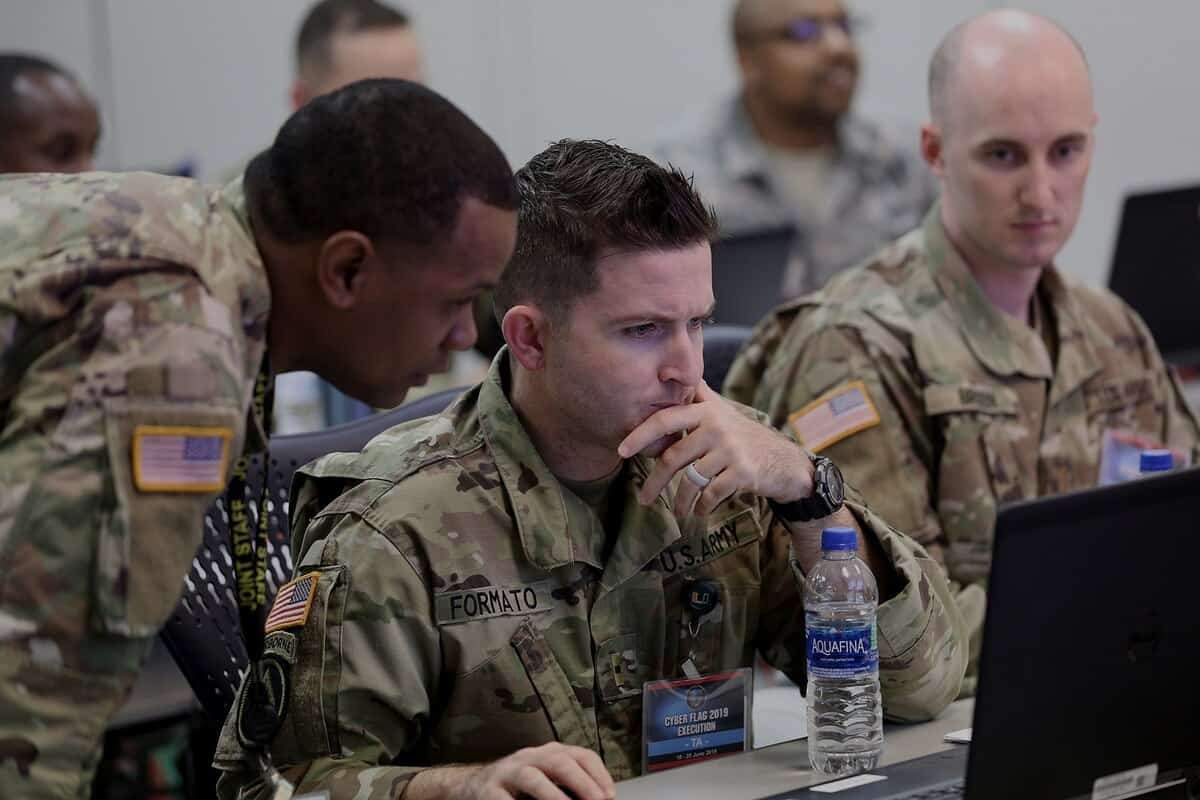Cyber Command doubled its contract spending in the past year

U.S. Cyber Command nearly doubled the amount of money it issued in defense contracts between fiscal years 2018 and 2019, according to figures provided in written testimony to Congress.
In 2019, the command awarded $74.9 million through 81 contracting actions, Gen. Paul Nakasone, the command’s leader told the House Armed Services Committee March 4. Those figures are up from the 32 contracts valued at $43 million in fiscal year 2018 that Nakasone provided in testimony in February 2019.
Congress gave Cyber Command limited acquisition authority in 2016 following the model of Special Operations Command. It capped acquisition funds at $75 million per year, with a clause that is scheduled to sunset in 2021.
However, some members of Congress questioned whether it needed $75 million.
Nakasone lauded the role of DreamPort, a public-private partnership in Columbia, Maryland created by Cyber Command to engage with businesses, in increasing the aperture of organizations it works with.
“Over the past 18 months, Dreamport has allowed the Command to engage more than 1,000 private companies, educate over 1,000 military personnel on innovative technologies, and involve more than 350 students and interns from 65 colleges and high schools on STEM initiatives,” he wrote. “It has been home to Cyber Command’s effort to begin implementing the principles of zero-trust networking on the military’s networks. Dreamport also hosted the public-private collaboration that resulted in kits that help enable the Cyber National Mission Force to conduct Hunt Forward operations. The traditional ways of doing business would have been too cumbersome and too slow. Dreamport is key to the command’s ability to engage in public-private partnerships at the unclassified level.”
Nakasone also told the committee in his written statement that the command has hired its first command acquisition executive responsible for leading the organization’s acquisitions and to develop capabilities for the joint cyber force.
In total, the command requested a $636 million budget for 2021, compared to the $596 million it used in fiscal year 2020.
The executive is largely responsible for procuring and developing capabilities under what Cyber Command calls the Joint Cyber Warfighting Architecture, which was established in the last two years to guide capability development priorities. These capabilities fall under five buckets;
Common firing platforms to be used at the four cyber operating locations of the service cyber components. These platforms will be worked into a comprehensive suite of cyber tools;Unified Platform, which will integrate and analyze data from offensive and defensive operations with partners;Joint command and control mechanisms for situational awareness and battle management at the strategic, operational and tactical levels;Sensors that support defense of the network and drive operational decisions, and;The Persistent Cyber Training Environment, which will provide individual and collective training as well as a way to rehearse for a mission. The Army is managing PCTE on behalf of Cyber Command and the joint force.
The cornerstone of this architecture is the command’s data tool called Unified Platform.
Nakasone told the House Armed Services Committee that Unified Platform is starting to come online and over the next year it will be the central focus of building the architecture allowing the force to store data and conduct worldwide operations.
Budget documents from the Air Force, the service procuring Unified Platform on behalf of Cyber Command and the joint cyber force, for fiscal year 2021 indicate flat funding for the tool for 2021 as compared to 2020.
Photo: Cyber Command increased its contracting activity and hired its first command acquisition executive last year. (U.S. Cyber Command Public Affairs)
https://www.fifthdomain.com/dod/cybercom/2020/03/09/cyber-command-doubled-its-contract-spending-in-the-past-year/




